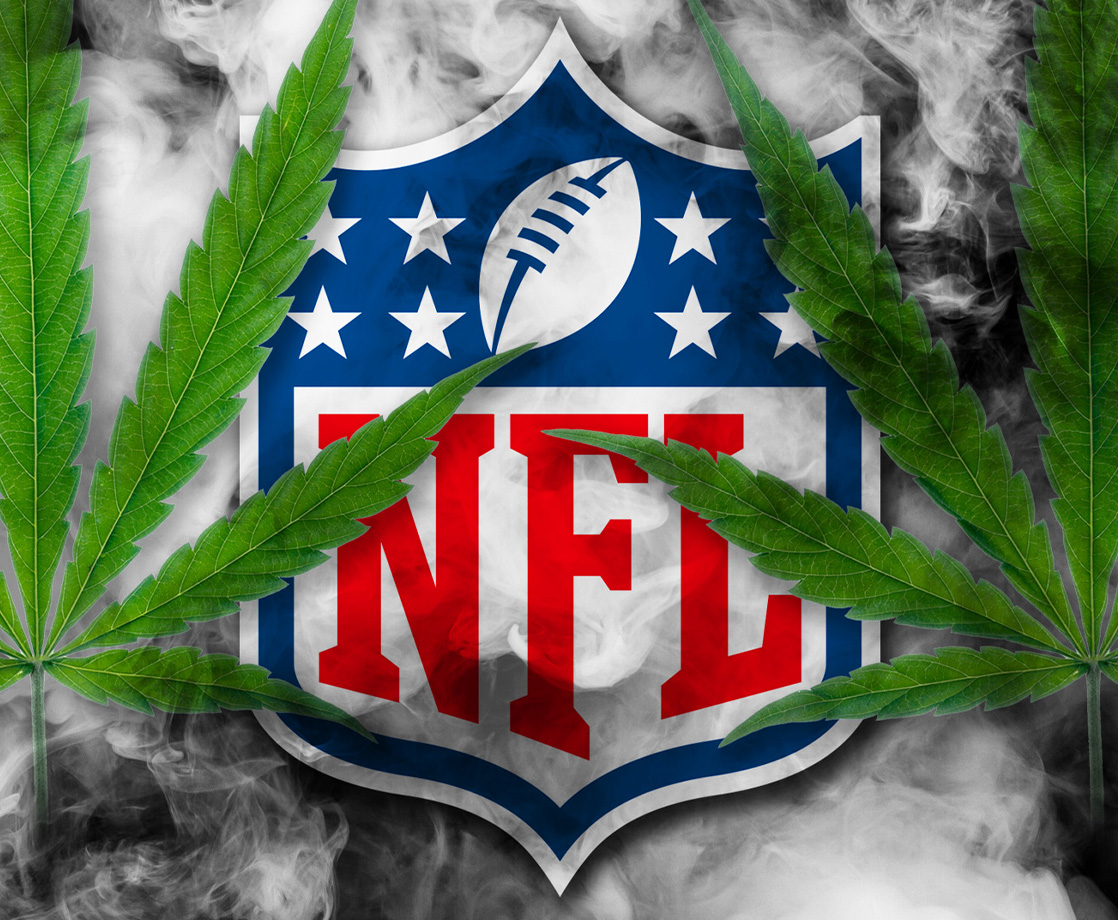Image via
Over the weekend, the NFL’s players voted 1,019 in favor and 959 against the league’s new collective bargaining agreement (CBA). That means the NFL’s ballers will no longer catch costly and career-destroying suspensions for marijuana use — or any drug use at all, for that matter.
Instead of suspensions, players who test positive for weed or other drugs will pay fines and attend counseling instead. It works like this: The first offense costs half a game’s paycheck. The second offense costs an entire week’s pay. A third offense costs two weeks’ pay. And any additional offenses after the third cost a three-game paycheck.
So, it looks like the NFL is now taking a page out of the government’s playbook by taxing players for getting high rather than kicking them out of the game (and both sides losing money in the process). So, rock star MVPs can probably afford to get blasted on a regular basis, but benchwarmers and rookies may want to take it easy on the partying.
Suspensions aren’t entirely off-the-table, though. Players can get booted from the game for refusing to cooperate with drug testing or attending counseling, but only after the fourth refusal offense. After the seventh violation, they can be suspended for an entire year.
However, drug testing requirements are being loosened, too. Fewer players will be randomly tested during the season, and they’ll only be tested prior to pre-season training and right before the pre-season’s first game.
Despite the CBA’s progress on drug use, some of the old rules will remain in place. For instance, DUIs will still lead to automatic suspensions. And performance-enhancing drugs like anabolic steroids will still get players suspended. In fact, the rule against performance enhancers may explain why Josh “Flash” Gordon, a wide receiver for the Seattle Seahawks, will have to reapply to the NFL through the league’s old rules if he wants to get on the field again. Obviously, the NFL isn’t playing when it comes to cheating with drugs.
The CBA is a labor contract made among the NFL’s owners, the players’ agents, and the players themselves. The current terms will begin at the start of the upcoming season and extend to March 2031. Among other agreements in the new CBA: The player salary cap was raised from $188 million to $198 million, the season expanded from 16 games to 17, and the playoff field expanded from 12 teams to 14.
This next NFL season may bring some incredibly interesting, and entertaining, developments. The new CBA doesn’t permit medical marijuana use, but it could serve as a step in the right direction. But some players, such as Eric Ebron of the Indianapolis Colts, took to Twitter to express disappointment that the CBA didn’t include more perks for the players.
Can’t believe we agreed to that lol. We can only play this game for so long and y’all didn’t want everything we could get out of it? Smfh. 2030 y’all do better
— Eric Ebron (@Ebron85) March 15, 2020
Other players, including long-retired Hall-of-Famer Carl Eller, praised the new CBA for expanding retirement benefits. The new CBA grants benefits to players who played in the NFL for only three years, whereas previous CBA’s only granted benefits to those who played for at least four years. Most importantly, the new three-year requirement applies retroactively to retired players who have received no benefits at all over the years, Eller included.
“It would benefit the guys that played only three years. They’ve waited a long time to get something. And it would increase pensions,” Eller told the Twin Cities Pioneer Press.
“I think the guys voting understand that former players really built the NFL,” he continued. “And I think this, with the NFL having its 100th anniversary [in 2019], is a good time to make sure more players participate in some of the benefits. I think that is a good way to celebrate that.”
Of the nearly 2,000 NFL players who voted for or against the new CBA, roughly 500 abstained from voting altogether.











